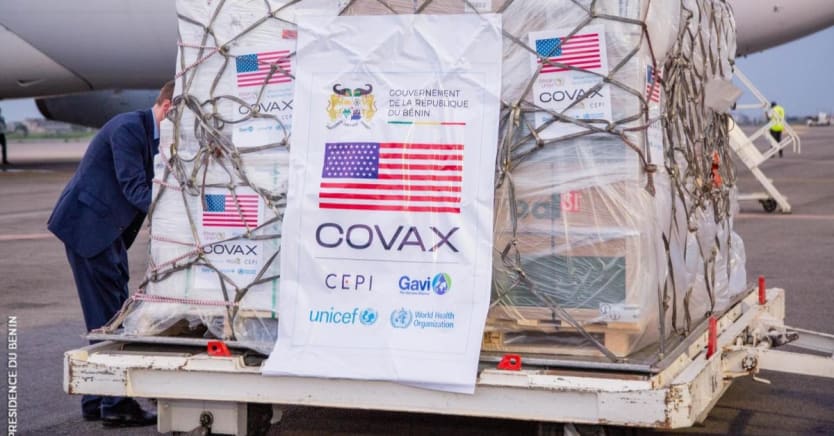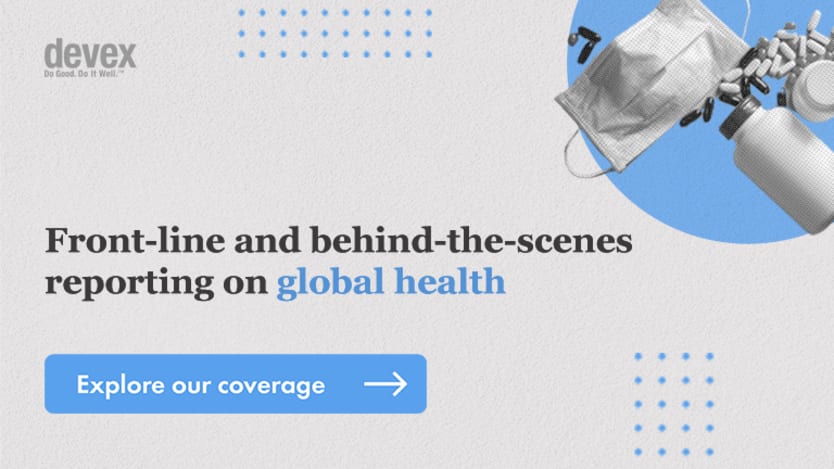
High-income countries not only need to speed up the delivery of their dose donations, COVAX says donations should also be more predictable and have a longer shelf life.
Sign up for Devex CheckUp
The must-read weekly newsletter for exclusive global health news and insider insights.
COVAX has delivered over 563 million doses as of Nov. 29. About 54% or 307 million of these doses were donations or facilitated by high-income country governments, a spokesperson from Gavi, the Vaccine Alliance told Devex.
Last week, Switzerland responded to COVAX’s appeals for countries with high vaccination coverage to swap delivery schedules, when it agreed to trade places with COVAX in the supply queue for deliveries of about 1 million doses of Moderna. This means that COVAX will receive the supply during the fourth quarter of 2021, and Switzerland — which currently has fully vaccinated 65.14% of its population, according to Our World in Data — will receive its own doses in 2022.
“We hope and expect more countries to follow suit. However, a great challenge we face is the quality of donations,” the Gavi spokesperson said and cited the call made by COVAX partners, together with the African Union and the African Centre for Disease Control and Prevention on Monday for governments and manufacturers to provide early notice and predictability in dose donations.
They said that “the majority of the donations to-date have been ad hoc, provided with little notice and short shelf lives,” making it “extremely challenging for countries to plan vaccination campaigns and increase absorptive capacity.”
They also called for governments and manufacturers to release doses in large volumes, provide unearmarked doses, and include ancillaries such as syringes and diluent. The majority of donations to date don’t include these, nor cover freight costs, which leads to additional costs, complexity, and delay, according to the statement.
They hope that governments and manufacturers will adhere to these standards by Jan. 1, 2022. While the world is still a long way to go from overcoming vaccine inequity, supply is also becoming more available, according to the Gavi spokesperson. But ensuring the vaccines are stable and predictable, and that countries have the capacity to deliver those doses will be important.
The World Health Organization has set a goal of fully vaccinating 70% of each country’s population by June 2022. That will require at least 11 billion COVID-19 vaccine doses, and an estimated financing of $55 billion to reach this target in low- and lower-middle-income countries, according to a strategy published in October.
“You can't have equity without transparency. If you don't know what's going where and when, you're not able to try and address the gaps in the equitable distribution.”
— Dr. Bruce Aylward, coordinator, ACT-APart of WHO’s strategy is for countries with high vaccination coverage to swap delivery schedules with COVAX and the African Vaccine Acquisition Trust, and to speed up the delivery of pledged doses. COVID-19 vaccine manufacturers should also prioritize contracts with COVAX and AVAT, and provide “full transparency” on vaccine production and delivery schedules to both vaccine procurement mechanisms every month.
Dr. Bruce Aylward, who coordinates the work of the Access to COVID-19 Tools Accelerator, said during a press briefing last week that WHO and other members of the Multilateral Leaders Task Force on COVID-19 have an “ongoing and improving dialogue” with manufacturers on vaccine production and where doses are going, but said more clarity is needed.
“We do not, I have to be clear, have enough clarity on supply yet to be able to say with certainty by what time will ... countries be able to be assured of the security of their supply” to get to 40% vaccination coverage by the end of the year, and 70% by mid-2022.
“Like we've said many times, you can't have equity without transparency. If you don't know what's going where and when, you're not able to try and address the gaps in the equitable distribution of what are still scarce products,” he said.

